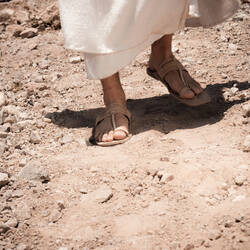Loading...
Click here if you don’t see subscription options
Click here if you don’t see subscription options
FaithOf Many Things
In Memoriam | Joseph A. O’Hare, S.J. | February 12, 1931—March 29, 2020 | 10th Editor in Chief, 1975 to 1984
Arts & CultureBooks
Maureen Day is an assistant professor of religion and society at the Franciscan School of Theology and the author of Catholic Activism Today: Personal Transformation and the Struggle for Social Justice.
Politics & SocietyEditorials
Like many other New Yorkers and America readers, we suffered a great loss on Sunday, March 29, with the death of Joseph A. O’Hare, S.J., editor in chief of America from 1975 to 1984.
Arts & CultureIdeas
What did Notre-Dame mean? What did it feel like to step into it in the Middle Ages?
Politics & SocietyFeatures
Trump voters were holding firm in early March, reports John W. Miller, but Covid-19 may bring a sea change in the key states of Pennsylvania, Ohio, Michigan, Wisconsin and Iowa.
FaithYour Take
In response to the Covid-19 pandemic, many dioceses have suspended in-person Masses or dispensed Catholics from their Sunday Mass obligation.
Arts & CultureBooks
If anything, the dystopia is even scarier in the sequel, which provides terrifying detail on the history of the Christian fundamentalist regime that overthrows the United States at Gilead’s founding.
FaithFaith in Focus
As Christians have become more familiar and neighborly with people of other religious traditions, we have extended that familiarity to appreciation, and sometimes appreciation becomes appropriation.
FaithThe Word
Our ideas of connection and community have been put to the test. Today’s readings reveal how early Christians connected with people in order to spread the faith.
FaithFeatures
In biblical terms, this all-pervasive sickness is a sign of the times.
FaithThe Word
It was the breaking of bread that revealed Jesus’ identity.
Arts & CultureBooks
Castillo writes with gorgeous precision and sensitivity about his experience as a boy growing into a man in a country that will not recognize him, his family split across borders.
Arts & CultureBooks
Mark W. Roche is the Joyce Professor of German and former dean of arts and letters at the University of Notre Dame.
FaithNews
Prison guards, probation officers and volunteers also authored some of the meditations, which were released in Italian April 3 by Libreria Editrice Vaticana, the Vatican publishing house.
FaithJesuitical
A conversation with historian Winston Black on plague, medicine and religion in the Middle Ages
FaithNews
The 90-day program provides a way for Catholics to make a daily commitment in addition to regular weekly donations.
FaithFaith in Focus
What our world will become will depend on the way we respond now, on how we can open our eyes and hearts to the things that really matter in our lives: family, friends, people, community, nation and a healthier world.
FaithFeatures
Milan, under quarantine, has asked me to renounce the particular version of our American response to fear that I have made my own.
Politics & SocietyDispatches
At each of Mexico City’s 13 prisons, hundreds of people are still admitted each visiting day to see their imprisoned family members. For the inmates, they are a vital lifeline.
















